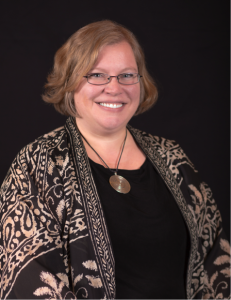Adult learning is an important topic for anyone engaged in the delivery of online higher education. Adults have unique learning needs and to be effective, instructors must take these needs into consideration. Adult learners have incredible resilience, zeal, and incentive despite sometimes impossible obstacles. Adult learners are highly motivated, self-directed individuals who engage in learning within the context of busy professional and personal lives. Adult learners bring personal and professional experiences to the learning task and therefore, it is critical that curricular content be relevant and applicable to the learner’s life. The adult learner’s academic success is closely tied to his or her sense of self-worth and so the learner comes to the learning event with great expectation and anticipation. There are several primary considerations for educators when working with adults:
- Typically, adult learners engage in educational endeavors to reach a desired goal. The knowledge gained from the learning less important than the achievement of the specific goal.
- Adult learners tend to be self-directed. They enjoy working independently and are highly self-sufficient.
- Adults bring a wide range of life experiences to the learning event. These experiences deepen the learning when connections are made to the lesson content. The instructor should provide a chances for sharing whenever possible so those connections can be made.
Because of the unique educational needs of adult students, it is helpful for the instructor to be reflective about his or her teaching. Here are some guiding questions that can be used to help bolster success with the adult student:
- What do I expect my adult students to know and be able to do at the end of each lesson/module/unit?
- How do these expectations contribute to course objectives?
- What knowledge, skills, needs, and interests do my adult students have that must be taken into account in my teaching?
- What do I know about the content, adult development, learning, motivation, and effective teaching strategies that I can use to accomplish my objectives?
- What instructional materials, technology, assistance, and other resources are available to help accomplish my objectives?
- How will I assess adult student progress toward my objectives?
- How will I respond if individual students or the class as a whole are not on track toward success?
The Online Learning Consortium is a great resource to help you develop new online teaching skills and hone your current skills. These workshops are particularly valuable for teaching and managing adult learners:
For more helpful workshops see the full workshop schedule here.
Melanie Shaw has over fifteen years of educational experience ranging from classroom and graduate level teaching to counseling and administration. She is Director of Online Curriculum and Instruction at Clemson University. In addition, Melanie is a dissertation chair, teaches undergraduate and graduate courses online, and develops curriculum for a variety of higher education institutions. She serves as an education consultant and as Executive Editor for the eLearning Institute.
Melanie’s primary research interests include online teaching and learning, organizational leadership, and distance learning instructional practices. She is the author of several books, articles, and chapters including: The Genre of Instructor Feedback in Doctoral Programs: A Corpus Linguistic Analysis; An Evaluation of Student Outcomes by Course Duration in Online Higher Education; Establishing an Online Professional Development Community to Promote Faculty Engagement and Excellence; Motivational Factors of Generation Y Educators: Implications for Teacher Retention; Distance Learning Courses: A Survey of Activities and Assignments; and Online Course Activities: A Survey of Assignment and Assessment Types. In addition to Melanie’s publications, she has presented at the U.S. Distance Learning Association Conference, Online Learning Consortium Conference, the Ubiquitous Learning Conference, International Learning Conference, and the Distance Learning Administration Conference. She is the winner of the Wagner Award for Outstanding Instructional Support and the Online Learning Consortium’s Effective Practice Award.
Melanie received a Ph.D. in Education with a specialization in Curriculum and Teaching from Northcentral University, a master’s degree in Education Administration from Grand Canyon University, and a second master’s degree in School Counseling for the University of West Alabama. She received her bachelor’s degree in Liberal Studies and Music from Excelsior College. She holds teaching certificates in online teaching, elementary education, and guidance counseling. She lives near Colorado Springs with her husband and two daughters.


